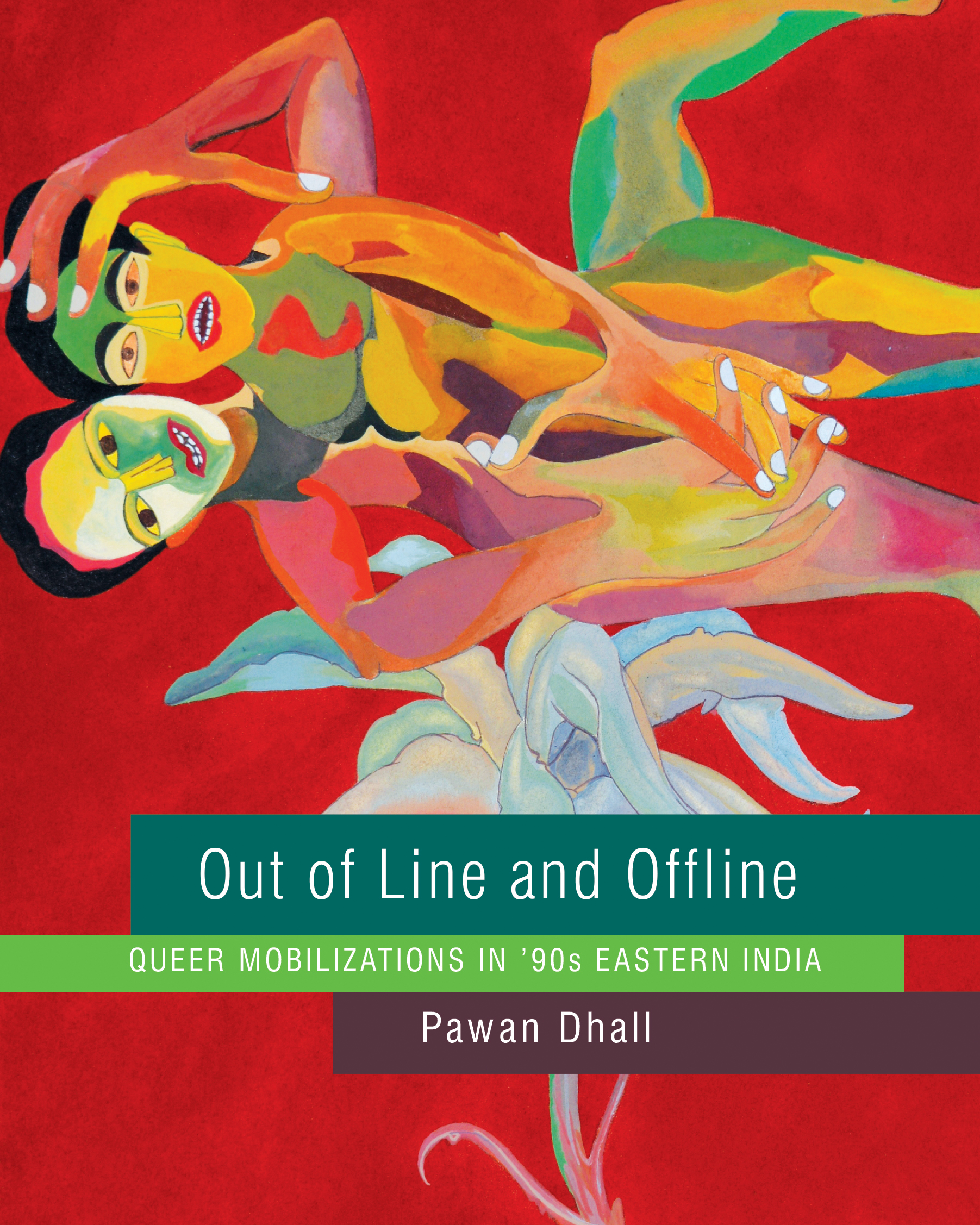Out of Line and Offline
Chosen by HuffPost India as one of the ‘50 Books to Look Forward to in 2020’
The 1990s and early 2000s were heady days for Indian queer people and their networks as they emerged from the shadows. These were days when queer communities were still criminalized and the Internet had not yet made inroads into most of India. Yet, queer people grouped together to deal with covert and overt forms of stigma, discrimination and violence in different spheres of life. Tracing the life stories of around a dozen queer individuals and their allies from eastern India, Out of Line and Offline dwells on the many ways in which queer communities were mobilized in the first decade of the movement in India, and how such mobilization affected the lives of queer people in the long run. Pawan Dhall draws on in-depth interviews, which generate compelling stories of individual lives and experiences in a society that was slowly being pressured to change. Dhall also delves into the archives of some of the earliest queer support forums in eastern India to reveal the ways in which the movement developed and grew. A thoroughly researched and poignantly human document, this volume will find an important place in the canon of literature on queer movements across the world.
Listen to a podcast in which Pawan Dhall discusses queer activism and Out of Line and Offline: Talking Queer: Archives, Activism, and Creative Disruptions
‘Puts the long struggle for LGBTQ+ rights in India in historical perspective.’—Somak Ghoshal, Mint
‘The author is a journalist with an archivist’s calling, and his intention is neither to explain nor justify the need for a queer movement; his focus is on the how, not the why. . . . Pawan Dhall’s holistic, inclusive perspective is the greatest strength of this book. He accepts the choices others make without judgement even if they are not immediately easy to understand. He sees value in all the people who become involved in advocacy and activism, no matter what their background or identity.’—J. M. Schreiber, roughghosts. Read the full review here.
‘What I like most about Out of Line and Offline is that it chronicles the work of people, groups and organisations who are doing important work but whose stories are not visible when the queer rights movement in India is usually talked about. This could be largely due to the fact that they are located away from Delhi, Mumbai and Bengaluru—which are usually considered to be the hubs of the queer movement—and their main focus is not cis gay men, the most visible face of the queer community in the media. [ . . . ] Dhall blends this archival research with in-depth interviews that bring us stories of queer folx associated with Counsel Club and Pravartak, and from allies who have been his peers in advocating for the rights of the community in various formal and informal spaces. Reading them in succession is a bit like watching a few engaging short films strung together.’—Chintan Girish Modi, Firstpost [Read the extensive review here]
‘Holds key elements of the history of queer movements in India.’—Gaylaxy Magazine [Read the interview with the author here]
Read more on the significance of queer activism of the 1990s in these articles that also feature Dhall’s Out of Line and Offline:
‘The Way We Were’ by Dhrubo Jyoti and Dhamini Ratnam
‘I March, Therefore I Am: Legal Change Happened Because LGBTQIA+ Activists Refused to Give Up’ by Sandip Roy
Buy the Ebook at a Discount:
If you are ordering from India, your order will be shipped from Seagull Books, Calcutta.
If you are ordering from the US or the UK or anywhere else in the world, your order will be shipped from the University of Chicago Press' distribution centre, Chicago.
Please note: For customers paying in currencies other than Indian rupee or US dollar, prices will be calculated according to the currency conversion rate at the time of purchase and may vary from the printed price.















